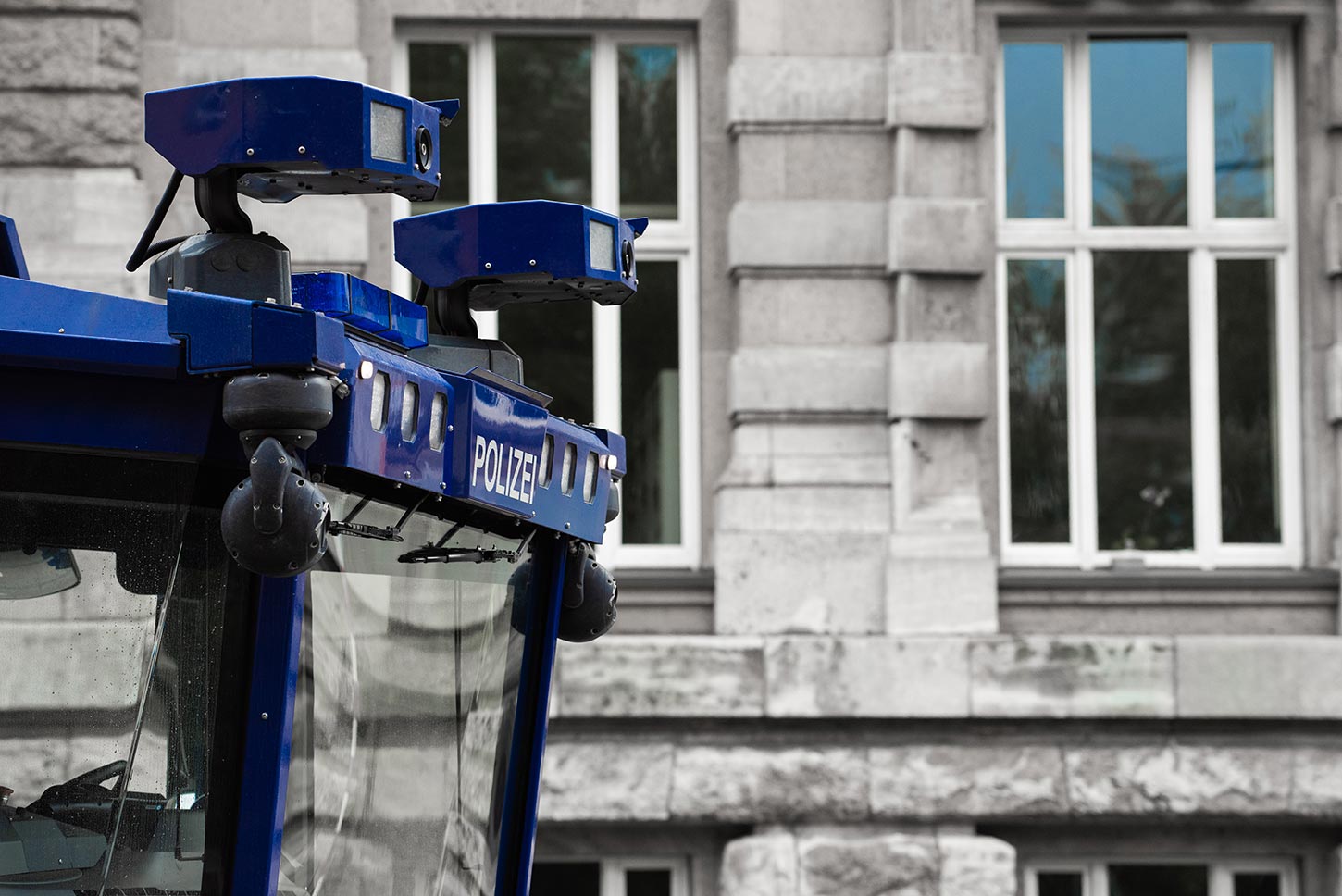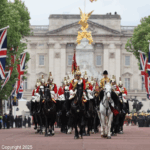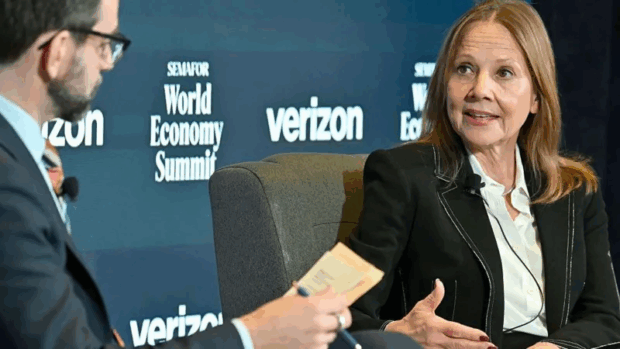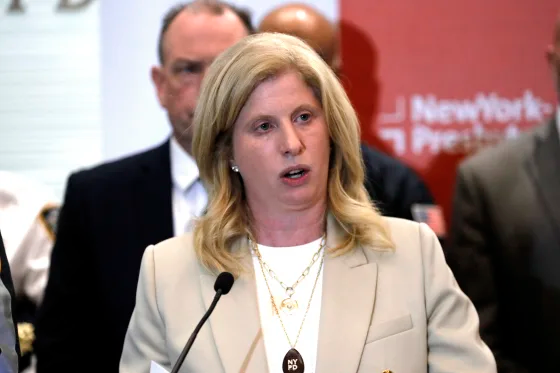
Twenty-three-year-old Joshua Steel found a “great sense of peace” when he began attending Catholic Mass in Britain, something he says was missing in his life. Twenty-six-year-old Dan Williamson was driven to convert by an “ache” for something “deeper and ancient and more rich.”
Both are among a growing number of men aged 18-34 attending church in Britain compared to pre-pandemic times, challenging the assumption that Christianity was in generational decline in Western nations like Britain.
As cardinals gather to vote for Pope Francis’s successor on May 7, the traditions and rituals of the Catholic Church, combined with a longing for connection and faith, appear to be attracting younger British adults, particularly men.
“I was looking for meaning in life,” Steel said after Mass at St. Elizabeth of Portugal church in southwest London, as incense lingered in the air. An Australian who moved to Britain in 2023, Steel was raised in a Catholic family but never attended church until he began trying to fill the “hole” he felt. “I found Christ. I found a great sense of peace that I can’t find anywhere else.”
The increasing church attendance in England and Wales among younger people was documented in the Bible Society and YouGov “Quiet Revival” report from April, which surveyed 13,146 adults in November 2024. Christians attending church at least monthly now comprise 12% of the population, up from 8% in 2018. For those aged 18-24, this proportion rose to 16% from just 4% in 2018, making them the second most likely group to attend church regularly after those 65 and over. The increase is particularly notable among younger men, with 21% identifying as regular churchgoers versus 12% of women in the same age group.
Almost 500 years after King Henry VIII’s break with Rome to establish the Church of England, Catholicism now exceeds Anglicanism in popularity among churchgoers aged 18-34, with 41% identifying as Catholic (up from 22% in 2018) compared to 20% identifying as Anglican (down from 30%).
According to 20 individuals interviewed for this story, including converts, faith leaders, and academics, contributing factors include the pandemic’s destabilizing impact, desire for ancient traditions during volatile times, interest in volunteering, and disillusionment with modern life.
The report also indicated that church attendees reported higher satisfaction and stronger community connections, appealing prospects in a digital age marked by rising anxiety and mental health concerns.
Williamson, who converted from Anglicanism to Catholicism and has struggled with anxiety, found reassurance in connecting to the past. “It is grounded in this thing which is so much bigger than ourselves,” he said. “We’re probably the first generation to try and live without God, and I think we’re slowly just saying that doesn’t work.”
David Stewart, a priest in Edinburgh, started a young adults’ Catholic group with approximately 30 people three years ago. He now hosts 100 regular young attendees at Sunday evening Mass, with over 200 people in a WhatsApp group. Stewart noted most participants had no religious background, with about 60-80% being men, many working in software and financial services. “They’re looking for something deeper,” he explained.
London’s St. Elizabeth Church has seen similar growth in its youth participation after churchgoer Georgia Clarke, 28, launched a Zoom call to help teenagers feeling isolated during the pandemic. The youth group now numbers 100. She attempted to reach people using the same “humble” approach as Pope Francis, favoring informal conversations over traditional sacramental preparation.
Aidan Geboers, 29, a banking industry professional who regularly attends a Catholic church in Mayfair, central London, appreciates the sense of belonging. “It is really nice to not be in front of a screen, be around people, you know, just expressing faith,” he said.
This growth has sparked debate about the church’s appeal. Census data shows those identifying as Christian in England and Wales dropped to 46% from 59% in 2011. However, academics suggest those remaining are more committed to their faith and church attendance.
Unlike in the United States, British politicians and public figures have traditionally been reserved about religion. This appears to be changing, with prominent young Britons like rapper Stormzy and footballer Bukayo Saka openly sharing their Christian faith on social media.
Increased immigration from more religious societies has also expanded public discussion of faith, with young Muslims discussing Ramadan online and offline. Faith leaders note that social media has provided easier entry into religion. Britain’s largest Christian publisher, SPCK, reported 310,458 Bibles sold in the UK in 2024, up from 258,391 in 2023 and 194,013 in 2018.
The Catholic Church reports global growth, with its population increasing by about 1% to 1.406 billion between 2022 and 2023. U.S. Vice President JD Vance is among high-profile converts, having joined in 2019.
Edinburgh priest Stewart suggested that for some, church attendance represents rejection of toxic masculinity in favor of “fellowship, tolerance, and service of others.”
Tim Hutchings, Associate Professor of Religious Ethics at the University of Nottingham, proposed that the pandemic may have boosted attendance due to social isolation experienced by young people. He also suggested the growth might represent pushback against progressive politics and traditional role decline. “Maybe as part of that, young people, and particularly young men, are saying, Let’s get into a really conservative, anti-feminist institution,” he said.
Pope Francis appointed more women to top Vatican positions but disappointed some advocates by deferring the question of women’s ordination as clergy.
Father Stephen Langridge of St. Elizabeth’s believes the appeal lies in ancient traditions that are “consoling in a world where everything seems to be transient, nothing seems to be lasting.”
“Are we seeing a seismic shift?” he questioned. “I don’t know. But what we are seeing is a significant shift.”

















Be the first to leave a comment